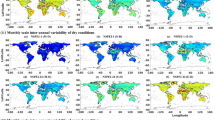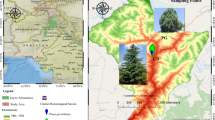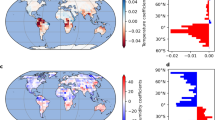Abstract
WITH reference to this most interesting question, may I be allowed to call attention to the following figures? Having had to consult Dr. Rutty's “Natural History of Dublin,” 1772, vol.ii., I casually found on p. 353 of that volume, in his remarkable detailed registry of the weather in Dublin for a long series of years, the following remark: “It has been remarked that the following years were memorable for great frosts in England, viz. 1638, 1661, 1684, 1708, 1716, 1739.” Now the intervals between these dates are 23, 23, 24, 8, 23. He further remarks, p. 368:—“It is to be observed that whereas since the great frost of 1739, until the latter end of the present summer, 1744, we had generally an unusual prevalence of dry weather, in autumn our usual wet weather returned.” It may be remarked that the interval of 23 years is about double the sun-spot period, and furthermore that the years mentioned by Rutty correspond roughly with years of sun-spot minima or maxima as given Wolf's Catalogue, mentioned by Guillemin in his work “Le Ciel” (1877), p. 104. This correspondence would appear as follows:—
This is a preview of subscription content, access via your institution
Access options
Subscribe to this journal
Receive 51 print issues and online access
$199.00 per year
only $3.90 per issue
Buy this article
- Purchase on SpringerLink
- Instant access to full article PDF
Prices may be subject to local taxes which are calculated during checkout
Similar content being viewed by others
Author information
Authors and Affiliations
Rights and permissions
About this article
Cite this article
O'REILLY, J. Weather Cycles. Nature 44, 541 (1891). https://doi.org/10.1038/044541a0
Issue date:
DOI: https://doi.org/10.1038/044541a0



